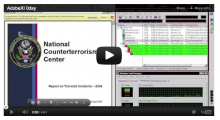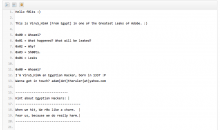Adobe to address threats in older versions of MS Office
Adobe Systems Incorporated (NASDAQ:ADBE) is planning to address some of the security vulnerabilities of older versions of Microsoft Office, especially that related to hacker threats.
Last week the software company said that it add a pop-up warning to its Flash Player, that will be triggered when possible threats are detected inside documents created with Office 2007 and earlier versions.










































































